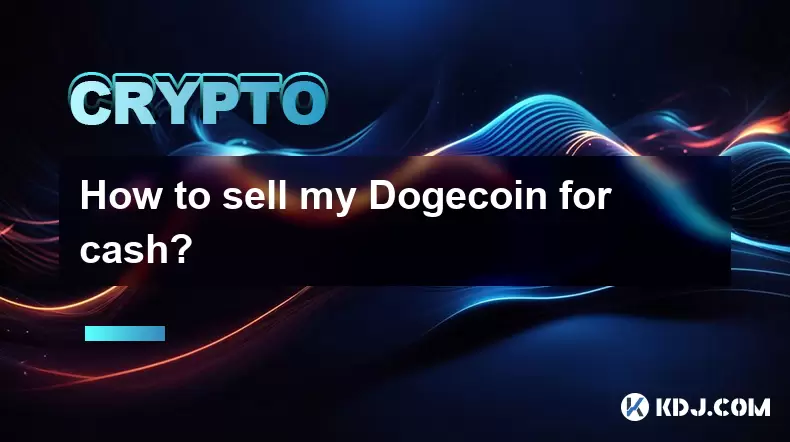-
 Bitcoin
Bitcoin $115100
1.27% -
 Ethereum
Ethereum $3675
2.71% -
 XRP
XRP $2.995
1.45% -
 Tether USDt
Tether USDt $1.000
0.02% -
 BNB
BNB $769.8
2.64% -
 Solana
Solana $168.0
3.25% -
 USDC
USDC $0.9999
-0.01% -
 TRON
TRON $0.3371
1.48% -
 Dogecoin
Dogecoin $0.2051
3.36% -
 Cardano
Cardano $0.7394
2.30% -
 Hyperliquid
Hyperliquid $38.15
0.42% -
 Stellar
Stellar $0.3966
-0.36% -
 Sui
Sui $3.486
2.93% -
 Chainlink
Chainlink $16.72
2.52% -
 Bitcoin Cash
Bitcoin Cash $568.0
4.36% -
 Hedera
Hedera $0.2440
2.59% -
 Ethena USDe
Ethena USDe $1.001
0.04% -
 Avalanche
Avalanche $22.16
2.06% -
 Litecoin
Litecoin $119.1
-0.73% -
 UNUS SED LEO
UNUS SED LEO $8.991
0.04% -
 Toncoin
Toncoin $3.232
-0.39% -
 Shiba Inu
Shiba Inu $0.00001233
2.82% -
 Uniswap
Uniswap $9.717
2.53% -
 Polkadot
Polkadot $3.664
1.85% -
 Dai
Dai $1.000
0.01% -
 Monero
Monero $281.2
-3.89% -
 Bitget Token
Bitget Token $4.350
1.55% -
 Cronos
Cronos $0.1428
5.07% -
 Pepe
Pepe $0.00001050
3.68% -
 Aave
Aave $262.3
3.54%
How to buy ETH at a low price through arbitrage trading?
Arbitrage trading in crypto involves buying ETH on one exchange at a lower price and selling it on another at a higher price, profiting from the difference minus fees.
Mar 27, 2025 at 01:07 pm

Understanding Arbitrage Trading in Crypto
Arbitrage trading exploits price discrepancies of the same asset across different exchanges. In the cryptocurrency world, this means buying ETH on one exchange where it's cheaper and simultaneously selling it on another where it's more expensive. The difference is your profit, minus transaction fees. This requires speed and efficiency, as price differences are often fleeting. The key is identifying these discrepancies quickly and executing trades before the market corrects itself. It's important to note that arbitrage opportunities are usually small and require significant trading volume to generate substantial profits.
Finding Arbitrage Opportunities for ETH
Locating arbitrage opportunities requires constant monitoring of multiple cryptocurrency exchanges. You'll need access to real-time pricing data from various platforms. Many dedicated arbitrage trading platforms and software solutions exist to help automate this process and alert you to potential opportunities. Manually checking prices across numerous exchanges is incredibly time-consuming and impractical for consistent arbitrage trading. Consider using specialized software or APIs to streamline this process.
Step-by-Step Guide to Arbitrage Trading ETH (Simplified Example)
This example simplifies the process; real-world arbitrage is far more complex and requires sophisticated tools.
- Step 1: Identify the Discrepancy: Find two exchanges where ETH prices differ significantly. Let's say Exchange A prices ETH at $1,800, and Exchange B prices it at $1,810.
- Step 2: Buy Low, Sell High: Buy ETH on Exchange A at $1,800.
- Step 3: Transfer ETH: Transfer your purchased ETH from Exchange A to Exchange B. This step involves network fees (gas fees on Ethereum).
- Step 4: Sell High: Sell your ETH on Exchange B at $1,810.
- Step 5: Calculate Profit: Subtract your initial investment, transaction fees on both exchanges, and network transfer fees from your sale proceeds to determine your profit.
Risks and Challenges of ETH Arbitrage Trading
Arbitrage trading, while potentially profitable, carries inherent risks.
- Transaction Fees: Network fees (gas fees on Ethereum) can significantly eat into profits, especially during periods of high network congestion. Carefully consider these fees when evaluating potential arbitrage opportunities.
- Price Volatility: Cryptocurrency prices are highly volatile. A sudden price drop on one exchange before you can complete your trade could lead to losses.
- Liquidity: Insufficient liquidity on one or both exchanges can prevent you from executing trades at the desired prices. Always ensure sufficient liquidity before initiating a trade.
- Exchange Delays: Delays in transferring funds between exchanges can negate any price advantage. Choose exchanges with fast and reliable transaction processing.
- Security Risks: Using multiple exchanges increases your exposure to security risks. Prioritize secure exchange selection and utilize strong security practices.
Advanced Techniques and Considerations
Sophisticated arbitrage traders often employ advanced techniques.
- Algorithmic Trading: Automating the process using algorithms and bots to identify and execute trades faster than humans. This requires programming skills and robust trading infrastructure.
- High-Frequency Trading (HFT): Employing specialized hardware and software to execute trades at extremely high speeds to capitalize on minuscule price differences. This requires substantial capital investment.
- Triangular Arbitrage: Exploiting price discrepancies among three or more exchanges. This is more complex but can yield higher profits.
Choosing the Right Exchanges for ETH Arbitrage
Selecting reliable and reputable exchanges is crucial. Factors to consider include:
- Liquidity: Choose exchanges with high trading volume and deep liquidity to ensure smooth execution of large trades.
- Fees: Compare transaction fees and network fees across different exchanges.
- Security: Prioritize exchanges with strong security measures to protect your funds.
- Reputation: Select exchanges with a good track record and positive user reviews.
Tools and Resources for ETH Arbitrage Trading
Several tools can assist in identifying and executing arbitrage opportunities:
- Arbitrage Software: Numerous software platforms provide real-time price comparisons across multiple exchanges and automate the trading process.
- APIs: Many exchanges offer APIs that allow you to access real-time price data and execute trades programmatically.
- Spreadsheets: While less sophisticated, spreadsheets can be used to manually track prices across different exchanges.
Frequently Asked Questions
Q: Is ETH arbitrage trading profitable?
A: While potentially profitable, it's not guaranteed. Profits are usually small and require significant trading volume and efficient execution to be substantial. Transaction fees and the risk of price fluctuations can significantly impact profitability.
Q: How much capital do I need for ETH arbitrage trading?
A: The required capital depends on your trading strategy and risk tolerance. Larger capital allows for larger trades and potentially higher profits, but also increases risk.
Q: What are the risks of ETH arbitrage trading?
A: The main risks include transaction fees, price volatility, liquidity issues, exchange delays, and security breaches. Understanding and mitigating these risks is essential.
Q: Is arbitrage trading legal?
A: Arbitrage trading itself is generally legal, but it's crucial to comply with all applicable laws and regulations in your jurisdiction. This includes tax laws and any regulations related to cryptocurrency trading.
Q: Do I need programming skills for ETH arbitrage trading?
A: While not strictly necessary for basic arbitrage, advanced techniques, such as algorithmic trading, require programming skills. Many software solutions exist to automate the process without requiring coding expertise.
Q: How can I minimize risks in ETH arbitrage trading?
A: Risk mitigation involves choosing reputable exchanges, using reliable software, carefully monitoring price movements, diversifying your portfolio, and understanding the transaction fees involved. Starting with small trades and gradually increasing your investment can also help manage risk.
Disclaimer:info@kdj.com
The information provided is not trading advice. kdj.com does not assume any responsibility for any investments made based on the information provided in this article. Cryptocurrencies are highly volatile and it is highly recommended that you invest with caution after thorough research!
If you believe that the content used on this website infringes your copyright, please contact us immediately (info@kdj.com) and we will delete it promptly.
- HashFlare Founders Face the Music: Jail Time Looms?
- 2025-08-07 14:30:12
- Toshi on Binance.US: A Memecoin's Big Break
- 2025-08-07 14:30:12
- Bitcoin, SPAC Mergers, and Parataxis: A New Yorker's Take on Crypto's Wall Street Moment
- 2025-08-07 14:50:27
- Bitcoin, Collateral, and Loan Strategies: A New York Minute on the Future of Finance
- 2025-08-07 14:50:27
- Ethereum's Bullish Surge: Reclaiming Crypto Leadership, a New York Minute
- 2025-08-07 14:55:12
- BlockDAG, Litecoin, and Cardano: Charting the Course in Crypto's Dynamic Waters
- 2025-08-07 09:09:06
Related knowledge

How to sell Tether (USDT) for USD?
Aug 07,2025 at 03:29pm
Understanding Tether (USDT) and Its USD ValueTether (USDT) is a stablecoin designed to maintain a 1:1 value ratio with the United States Dollar (USD)....

How to sell my Bitcoincoin for cash?
Aug 07,2025 at 02:14pm
Understanding the Basics of Selling Dogecoin for CashSelling Dogecoin for cash involves converting your DOGE tokens into a fiat currency such as USD, ...

What is Chainlink (LINK)?
Jul 22,2025 at 02:14am
Understanding Chainlink (LINK): The Decentralized Oracle NetworkChainlink is a decentralized oracle network designed to bridge the gap between blockch...

What is Avalanche (AVAX)?
Jul 22,2025 at 08:35am
What is Avalanche (AVAX)?Avalanche (AVAX) is a decentralized, open-source blockchain platform designed to support high-performance decentralized appli...

What is Polkadot (DOT)?
Jul 19,2025 at 06:35pm
Understanding the Basics of Polkadot (DOT)Polkadot (DOT) is a multi-chain network protocol designed to enable different blockchains to transfer messag...

What is Litecoin (LTC)?
Jul 23,2025 at 11:35am
Overview of Litecoin (LTC)Litecoin (LTC) is a peer-to-peer cryptocurrency that was created in 2011 by Charlie Lee, a former Google engineer. It is oft...

How to sell Tether (USDT) for USD?
Aug 07,2025 at 03:29pm
Understanding Tether (USDT) and Its USD ValueTether (USDT) is a stablecoin designed to maintain a 1:1 value ratio with the United States Dollar (USD)....

How to sell my Bitcoincoin for cash?
Aug 07,2025 at 02:14pm
Understanding the Basics of Selling Dogecoin for CashSelling Dogecoin for cash involves converting your DOGE tokens into a fiat currency such as USD, ...

What is Chainlink (LINK)?
Jul 22,2025 at 02:14am
Understanding Chainlink (LINK): The Decentralized Oracle NetworkChainlink is a decentralized oracle network designed to bridge the gap between blockch...

What is Avalanche (AVAX)?
Jul 22,2025 at 08:35am
What is Avalanche (AVAX)?Avalanche (AVAX) is a decentralized, open-source blockchain platform designed to support high-performance decentralized appli...

What is Polkadot (DOT)?
Jul 19,2025 at 06:35pm
Understanding the Basics of Polkadot (DOT)Polkadot (DOT) is a multi-chain network protocol designed to enable different blockchains to transfer messag...

What is Litecoin (LTC)?
Jul 23,2025 at 11:35am
Overview of Litecoin (LTC)Litecoin (LTC) is a peer-to-peer cryptocurrency that was created in 2011 by Charlie Lee, a former Google engineer. It is oft...
See all articles

























































































